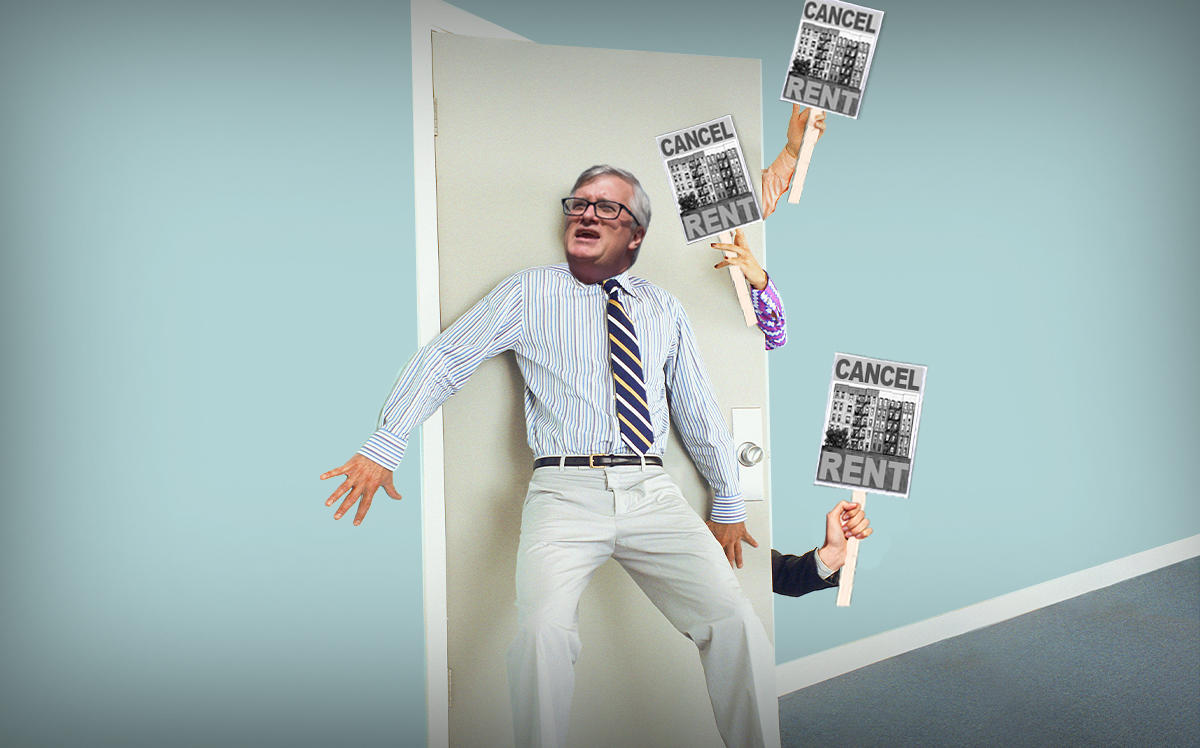State legislators are back in action, but their cancel-rent bills are not.
Lawmakers are tabling the controversial bills and instead focusing on more politically feasible measures, at least for now.
One reason for legislators’ caution may be the coming elections — a June 23 primary and a general election in November. Canceling rent does not play well in some competitive districts.
And Gov. Andrew Cuomo, who is wielding broad executive powers and high approval ratings during the coronavirus emergency, said he is tabling rent talks until Aug. 20. To pass a rent bill without his input would risk his ire, which can be considerable and enduring.
So with limited appetite for a legislative showdown, lawmakers are prioritizing such measures as a bill by Manhattan Sen. Brian Kavanagh to supplement rent to landlords whose tenants prior to March 7 made 80 percent of the area median income and can document a loss of earnings. Those who have lost their income entirely would not pay rent.
The bill would tap into $100 million that was part of federal funding allotted to New York for a wide array of uses, including rent relief.
Kavanagh, who was regarded by the real estate industry as a moderating force on hot-button issues such as last year’s rent law and “good cause” eviction, said that in this case, the interests of landlords and tenants are complementary.
“The cancel rent movement and the rent strikes brought a lot of attention to how grave the problem is, and how many tenants are affected,” said Kavanagh. “But I think many tenants would actually appreciate a program that pays the rent and allows them to get on with their lives, and certainly landlords have expressed a lot of desire for this kind of approach.”
But tenant advocates are organizing against the bill. Tenant coalition Housing Justice for All has several objections to the measure — first, that it is not universal but means-tested, which they say excludes undocumented people. The bill also seeks to maintain, rather than ease, existing rent burdens.
On the other hand, the real estate industry supports the bill, seeing it as more palatable than canceling rent. But the $100 million won’t go far enough, Kavanagh acknowledged, in a state where nearly half of all tenants were rent-burdened before Covid-19 hit.
“This is a modest beginning toward meeting an enormous need,” Kavanagh said.
As rent collection drops, the lack of a solution has confounded landlords and tenant advocates alike. Earlier this month Cuomo said rent was the “No. 1 issue” people ask him about.
Meanwhile, rent strikes have been organized and an industry group reported a quarter of New York City tenants skipped rent in May. Outside the city, real estate groups report even more dismal rent collections — the New York Capital Region Apartment Association, which organizes landlords upstate, said 38 percent of its renters had not paid May rent.
Another bill advancing in Albany, sponsored by state Sen. Brad Hoylman and Assembly member Jeffrey Dinowitz, would limit evictions. It hews closely to Cuomo’s executive order expiring Aug. 20, except it would last as long as any provision of the state’s shutdown order is in place. That could be a while, given that the capacity of theaters and other indoor gathering places will likely be limited for months.
Both of those measures are widely expected to pass, legislative sources say.
Meanwhile, two more radical rent policies, proposed by state Sen. Julia Salazar and state Sen. Michael Gianaris, face an uphill battle. Sources close to the negotiations say the bills have stalled completely.
Salazar’s bill would cancel a portion of the rent for tenants with financial difficulties. Gianaris’ bill would suspend rent for small-business and residential tenants who lost their livelihoods. Both would have cut into the bottom lines of rental property owners and lenders.
Still, a Senate source said the fight to cancel rent isn’t over.
“There’s a coming housing crisis because of Covid-19,” the person said. “There will be more approaches taken, as aggressive as needed, when that is needed.”
